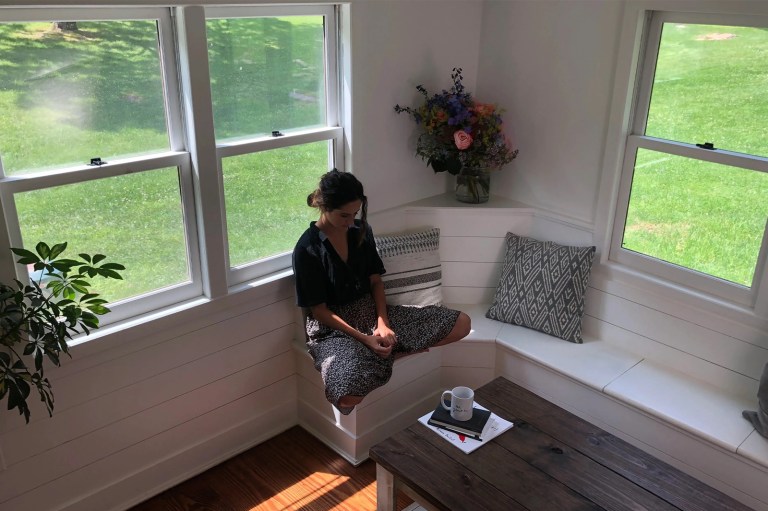
10 Things You Do If You Have Maladaptive Daydreaming
We don’t create fantasies to escape reality; we create fantasies so we can stay. – Lynda Barry
In 2002, Eliezer (Eli) Somer of the University of Haifia in Israel coined the term “Maladaptive Daydreaming” to mean “extensive fantasy that replaces human interaction and/or interferes with academic, interpersonal or vocational functioning”. While that may sound like a confusing mouthful, it’s actually thought to be a fairly prevalent disorder (judging by the plethora of online support groups, blogs, and communities dedicated to MD). Despite the forums, blogs and research surrounding MD, it’s still a widely misunderstood (and frequently misdiagnosed) condition.
Maladaptive Daydreamers are typically thought of as psychotic by the uneducated eye (doctors included, since it’s still not a widely acknowledged condition), but MDers are far from psychotic. Psychosis in and of itself is basically a word meaning “inability to differentiate between fantasy and reality” (originating from the words “psukhē” [soul, mind], “psukhoun” [give life to] and “psukhōsis” [animation]), those with MD can very well understand their fantasies are just that… fantasies. Someone with true psychosis wouldn’t be able to understand that their fantasies are not real; thus, a major defining difference between MD and psychosis.
So, now that we’ve got all of that out of the way, let’s move on to the main point of this article… shall we? All of you fellow MDers will definitely hardcore relate to these.
1. You have compulsions (pace, rock back and forth, tap your foot, etc.).
Yes, this includes gesturing, clapping and any other compulsive behaviors you do while daydreaming. We totally don’t blame you for being so restless while fantasizing; it’s so hard to stay still with all the unrestricted action in your head! MD has a lot of traits identical, or similar, to OCD. Namely, the compulsions and the inability to stop daydreaming; especially if you try to force yourself to stop. Just like OCD obsessions, you just have to ride the thoughts out until they stop at their own will. This is something a lot of people have a hard time understand; not just with MD, but with OCD as well.
2. You could totally create award-winning media if you tried.
It’s no secret MDers can be as creative as a 5-year-old hopped up on sugar, so why couldn’t we use our fantasies to create movies, music videos, etc.? I think it’s a great idea. I mean, why shame someone for having such endless amounts of creativity? Even if the MDer doesn’t daydream about stereotypical colorful alien worlds and beautiful, scantily clad Anime women (I sure as hell don’t), they could create so many other things stemming from their daydreams. Dramas, romances, horror books and movies, and anything else they could dream up.
3. People constantly compare you to someone with ADD and ask if you have ADD. Or they yell at you for spacing out every three seconds.
Okay, so maybe you don’t space out every three seconds (like I do…but I actually do have ADD), but you get my point. It’s hard to pay attention to reality when it gets boring… like when doing tests, writing up paperwork, listening to your Uncle Joe tell his stories about… I don’t know. I wasn’t paying attention (sorry, I had to tell that joke). :’D Jokes aside, it is hard for us not to space out and daydream. Most of us aren’t able to snap back and forth between reality and our daydreams willingly, so please, have some patience with us.
4. You talk to yourself, whisper to yourself, and/or mouth words you’re saying in your fantasies.
This is one of the biggest reasons doctors (and our friends and families…maybe even our pets) mistake us for loons escaped from the nuthouse. We’re actually just so enthralled with our fantasies that we don’t even realize we’re practically talking to ourselves… until you stare at us like we’ve got three heads. Like I said earlier, we have amazing things going on inside our heads… and it’s hard for us not to randomly space out. There have been times where people around me thought I was having an absence seizure because of the intensity and suddenness of my daydream “attacks”.
5. You get embarrassed, depressed, and ashamed by your daydreaming tendencies.
Sure, sometimes being a maladaptive daydreamer is a great thing; like if you’re an artist of sorts or need support when there are no external outlets (the support thing can be a double-sided blade, so be careful with that one). But a lot of people don’t realize how hard it is to daydream constantly. It can lead to anxiety, depression, obsessions, derealization and/or depersonalization…etc. It’s not always sunshine and rainbows in your head either; hard times, in reality, can easily carry over into your daydreams and lead to LOADS more stress on top of whatever is stressing you out in reality. It also gets in the way of daily functioning; sometimes to the point of being unable to meet basic needs (food, hygiene, etc) because you can’t pull yourself out of your own mind. It’s a scary thing if you really think about it.
6. You feel emotions from your daydreams as if you’re really living your daydreams in reality.
I swear, I wasn’t trying to make the title of this one confusing… it just is. Even though you know you aren’t really living whatever drama, horror, excitement, WHATEVER is going on in your head, you still feel it as if it’s really happening…right here, right now. In my personal experience, this can be amazing and uplifting, downright depressing or even completely horrifying (I am a major horror fan… so let that sink in. It’s basically a Rob Zombie film in my head at times). As weird as it sounds, we can’t control our emotions as well as we tell ourselves we can. We can hide them, but that’s not controlling them. This can be a major source of embarrassment, shame, all those other negative emotions I mentioned earlier.
7. You look things up online, listen to music, watch stuff, or read to fuel your daydreams.
This one pretty much explains itself. Sometimes though, our daydreams are fueled by these things even when we aren’t trying. I couldn’t tell you how many times I have had to stop watching a movie halfway or something because my daydreams were just making it impossible to focus on the movie… it’s kinda funny sometimes though, my mind seems to come up with better endings than the actual movie’s.
8. You hate being interrupted when you’re knee-deep in a great fantasy.
This is even worse than being interrupted in the middle of a movie, book or new song… Not only is it embarrassing to know someone may have seen you acting out whatever you’re thinking about, but it’s just plain annoying to be left hanging when you’re imagining yourself as a badass bounty hunter who’s chasing the world’s most infamous criminal.
9. You wish others understood you and your fantasies.
Everyone has felt misunderstood at some point in their lives; so most of you should know how isolating lack of connection between peers can be. Maladaptive Daydreaming is still relatively new; many people know nothing about it yet. So those of who do have it and know what it is are left in the dark and have to rely on internet forums and such to meet other MDers since doctors and therapists are still widely unaware of MD’s existence.
10. You think of maladaptive daydreaming as a blessing and a curse.
You may not always think this way, but when you really stop to think about it… every bad thing has a good part to it. Yeah, sometimes MD gets in the way of life and/or messes with your emotions… but it’s also a creative outlet not many people have. Your mind comes up with such elaborate and vivid waking dreams… utilize them! Write books and/or poems! Or direct media! Use that creative brain of yours! 











